Review: Hobby Boss 1/350 HMS Lord Nelson – Build Review, Part 1
HMS Lord Nelson and her sister ship Agamemnon were the last of the Royal Navies pre-drednaught battleships, often referred to as intermediate dreadnaughts they were designed to be superior to the ships then being constructed by foreign navies rather than just matching them.
The ships were to feature more powerful versions of the 12 and 9.5 inch guns, improved anti-torpedo and armour protection as well greatly increased steaming radius, though proving to be a relatively successful design the class was rendered obsolete even before they went into service (along with the rest of the Royal Navy) by the revolutionary HMS Dreadnaught which was launched in 1906, two years prior to Lord Nelson's 1908 launch.
Laid down by Palmer at Jarrow on the 18th of May 1905 and commissioned at Chatham on the 1st December 1908, Lord Nelson served with the Home Fleet during the early part of the Great War, covering the passage of the BEF to France in August 1914 while serving with the Channel Fleet until transferred to the Dardanelles in February 1915.
Lord Nelson had an eventful time in the Mediterranean, taking part in the bombardment of the inner forts in March and the Gallipoli landings during April 1915. Lord Nelson was heavily engaged when attacking Turkish forts on the 7th of March, suffering several hits from large caliber projectiles, resulting in splinter damage, cut up rigging and one hit below the waterline that flooded two coal bunkers.
After refitting in Malta Lord Nelson returned to the Dardanelles where she remained until the 12th of May 1915, attacking the narrows, bombarding field batteries and engaging the German battlecruiser Goeben.
Lord Nelson returned to the Mediterranean in June of 1915 where she remained until the end of the Great War finally being sold for scrap in 1922.
(History sourced from "British Battleships 1889-1904". R A BURT)
The Kit
The Hobby Boss Lord Nelson, Item No 86508 comes in a sturdy top opening box adorned with an image of the ship bombarding Turkish forts in the Dardanelles painted by Australian maritime artist Randall Wilson, check out Randall's website Navart for more of his work where one can purchase original works and prints of most of the Trumpeter/Hobby Boss naval box arts.
The kit comprises 9 sprues, 1 full length deck and the superstructure base in light grey plastic. 4 photo-etch frets, 1 decal sheet, 1 instruction manual and 1 colour painting guide.
Sprue A
Sprue A contains the two hull halves, these are full hull with no option/guide to provide for waterlining, however I have started the kit and found it very easy to waterline the model by using a panel line engraver guided by the raised plating provided on the hull moldings.
As stated the hull features a nice representation of the hull plating, nice deep portholes which include eye brows (rigols) and was flash and warp free.
Sprue B
Sprue B is the one piece deck, this includes nicely engraved plank detail with the plank ends also featured, again no flash is evident however the coaling scuttles are represented by rather deep circular depressions that cry out for photo-etch covers that are not included on the kits PE frets. The various raised hatch coamings are devoid of hatch detail apart from featureless squares a point I find strange as I also have the Hobby Boss Danton kit which does have this detail included.
Sprue C
Sprue C is the lower part of the superstructure or flying deck, a nice piece of slide molding where I can see no ejector pin marks in visible areas.
Sprue D
Sprue D comprises the rudder, props, mast parts, and superstructure elements, I did observe some flash around the openings for the guns on parts D39 and D38, easily removed with a sharp scalpel.
Sprue E
Sprue E is dominated by the two funnels and the base of the rear control station, the sprue also contains some of the ships boats, nicely molded, flash free parts throughout, of note are the molding pips attached to the boats, these aid in reducing injection marks but will require careful removing so as to not damage the parts.
Sprue F
Sprue F contains the internal bulkheads that are placed between the hull halves to provide strength to the final assembly, if waterlining the kit just apply glue to the upper parts of these before securing the deck, then snip off the lower portions once the lower parts of the hull have separated. Also included is the boat skids, impressively in scale for plastic.
Sprue G
Sprue E comprises a name plate, funnel base and the base of the forward control/bridge also included are 2 superstructure elements, no flash or injector marks to be seen.
Sprue K x 2
Sprue K is repeated, it features ships boats, small caliber guns, support posts for the flying deck, boat davits, torpedo net booms and search lights, some of these items are delicate and will require careful removal from the runners, all of the parts are flash free and contain some nice detail. The net booms are pretty nice for the limits of injection molding however I have some spare turned bras items in the spares box that I feel will add some finesse.
Sprue J x 2
Sprue J is repeated featuring the main armament, mast parts, davits, range finders and some smaller items. All gun barrels include hollowed out muzzles which is a nice touch, again flash free.
Photo Etch
The PE frets include most of what you will need to produce a nice model, ship specific parts such as the stern walk and main armament depression guards are finely reproduced. Enough railing is included to complete the kit and appears to be fine and in scale to my eye. Not included are the coaling scuttles and hatch detail. Like anything you could go to town on this kit and add a mountain of extra etch however Hobby Boss have included enough so that a really nice representation can be built from the box.
Decals
Decals are included for flags and the white bands around the funnels, the ships name is not included however it was placed at the stern under the stern walk so would be difficult to see anyway.
Instruction Manual and Colour Guide
Clear instructions over 41 steps. The colour guide gives paint colour call outs for the hull and main decks, I would question the requirement for grey on the upper decks as I believe that a red brown linoleum was used by the Royal Navy at this time.
Thoughts and impressions
This is a nice kit, it matches the plans drawn by RA BURT, is not over complex and features well molded plastic parts and fine PE. Pre-Dreadnaughts have been overlooked subjects in the past and Hobby Boss should be applauded for bringing out these kits.
It should be noted that the kit is of Lord Nelson pre- Dardanelles, by the time of the action depicted on the box art Lord Nelson had the small caliber guns removed from atop the gun turrets, an anti-aircraft gun at the end of the superstructure and extra search light platforms around the fore mast.
I have started to build the kit, waterlining the hull, adding brass torpedo net booms and hatch covers. The stern walk took some effort to apply the curve to the roof and while not perfect looks ok.
I have also added the torpedo net which I cut from a venetian blind chord.
I shall post more progress as I move along, the only issue so far has been a not so good fit of parts D38 and D39 to part C resulting in a small gap which was easily filled with a shim of plastic card.
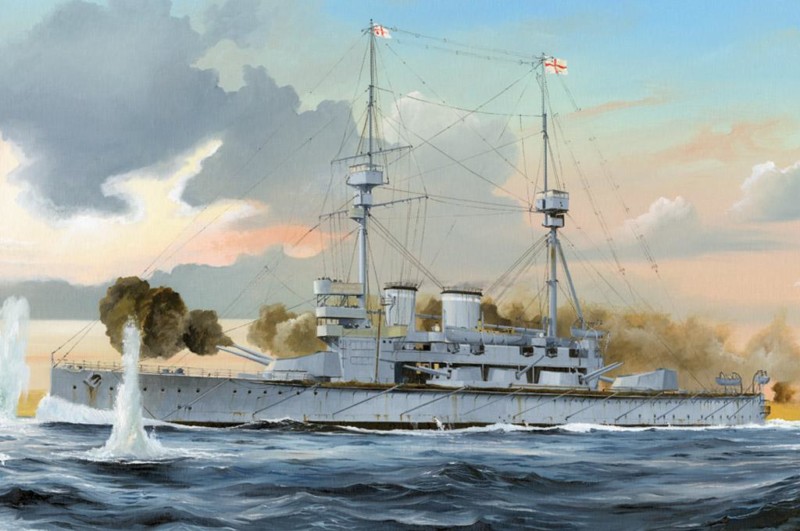
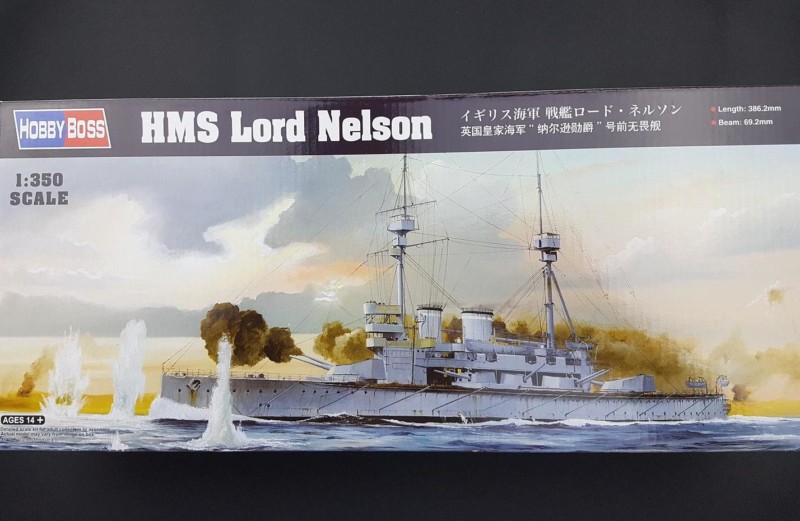
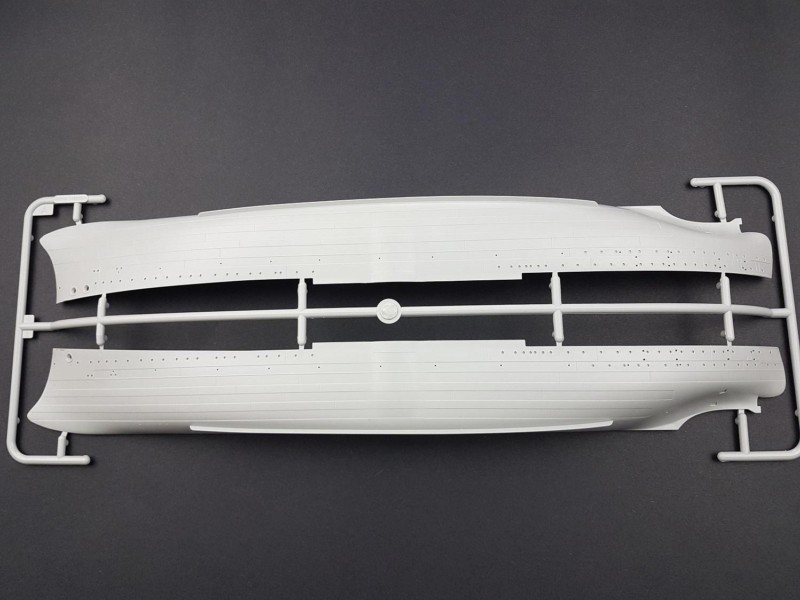
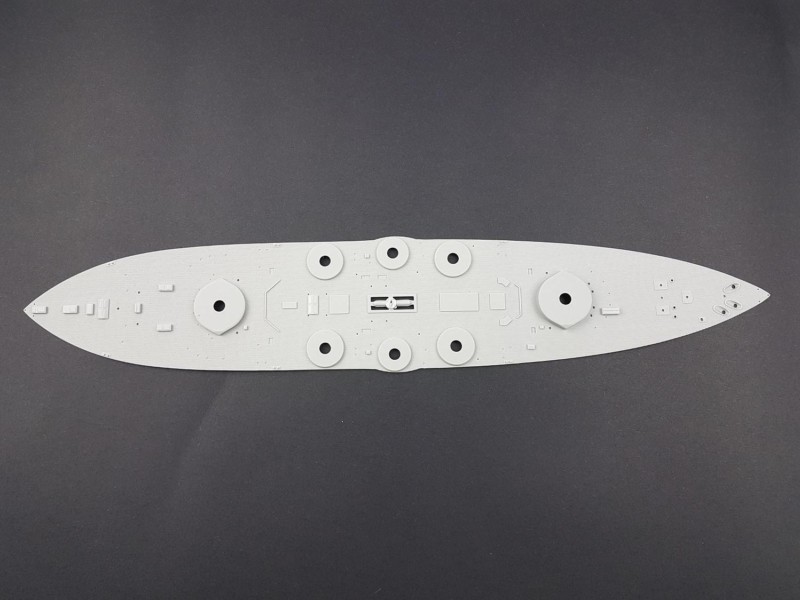
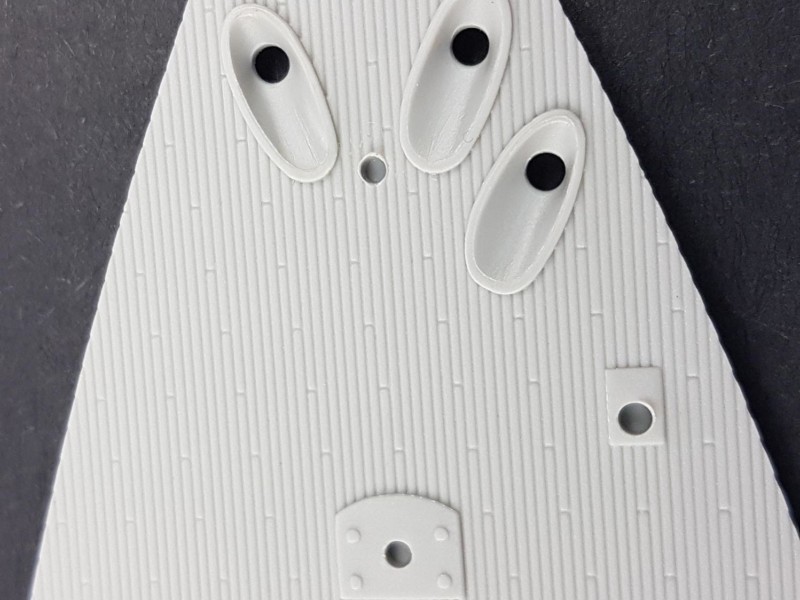
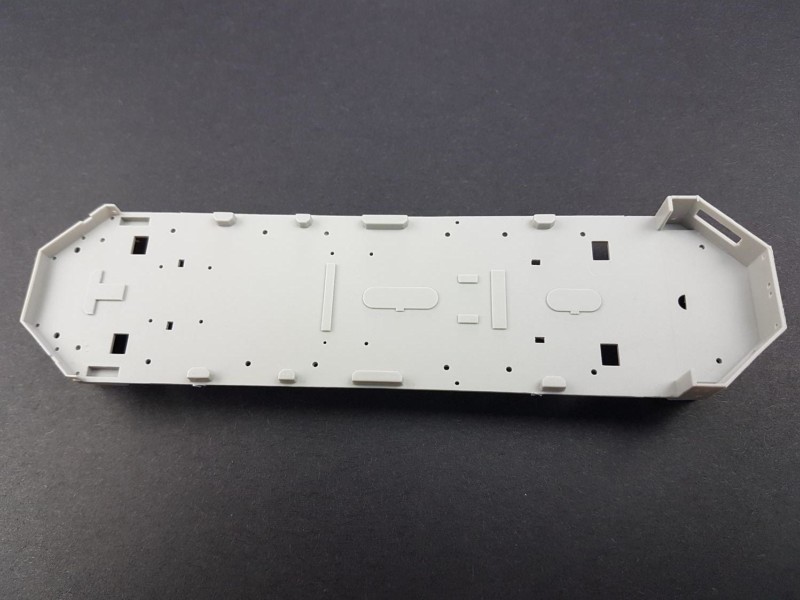
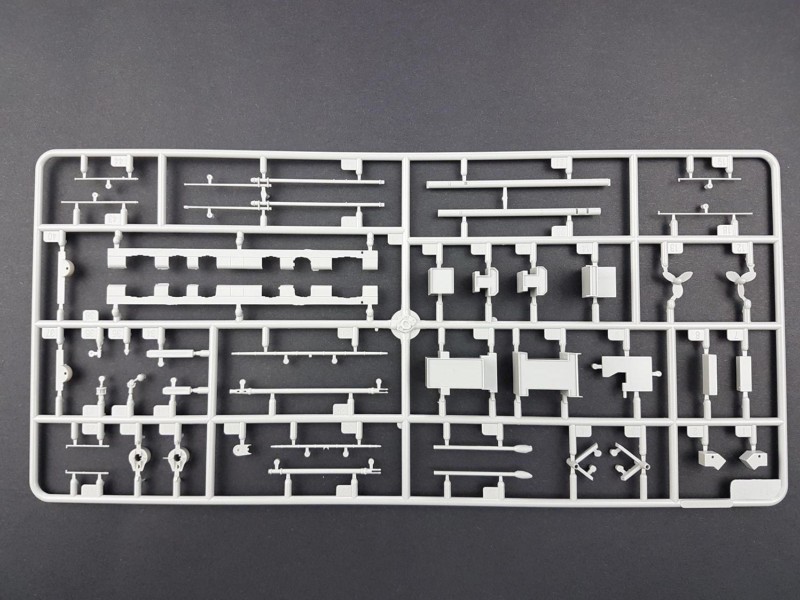
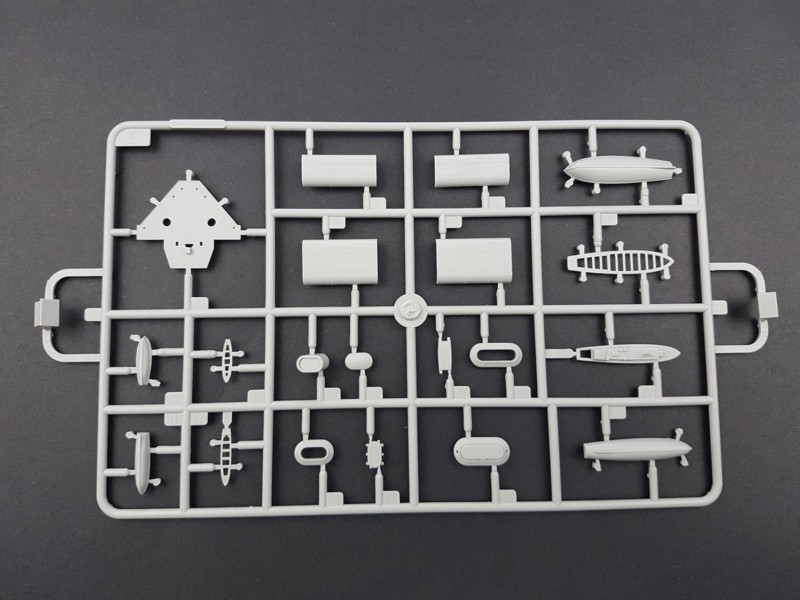
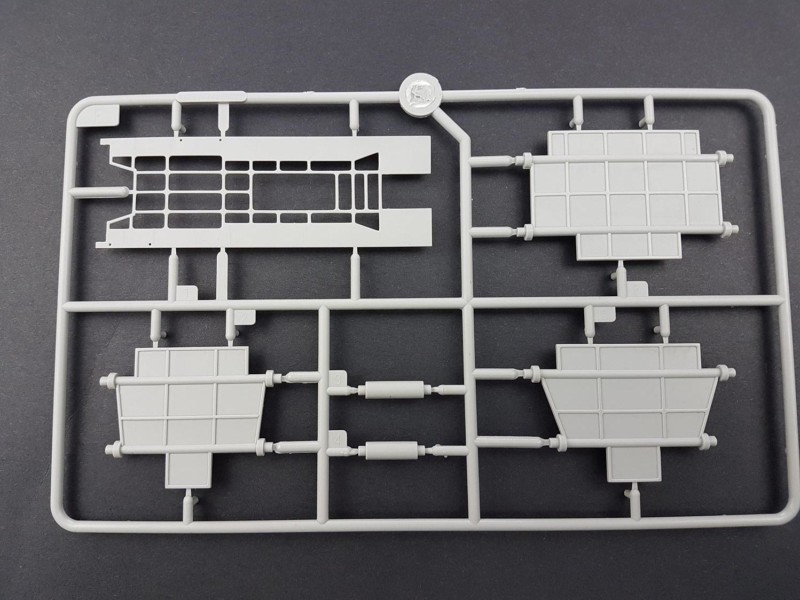
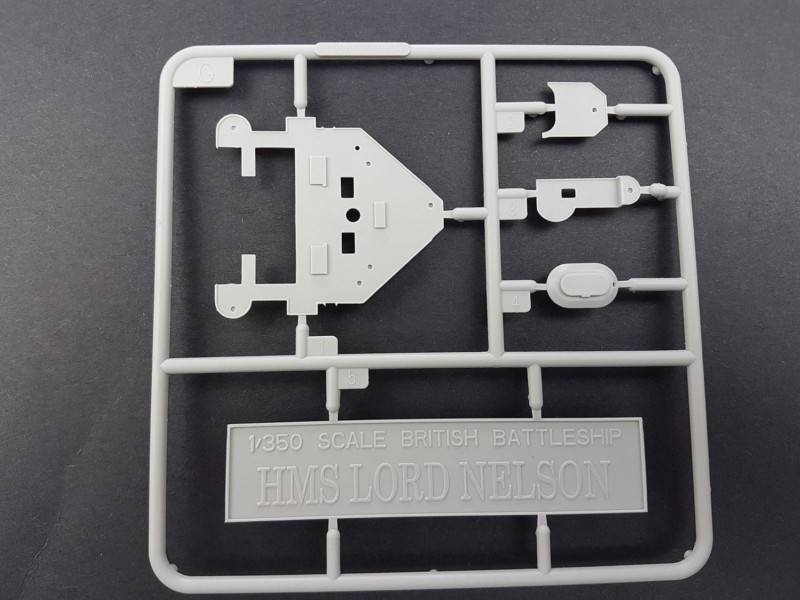
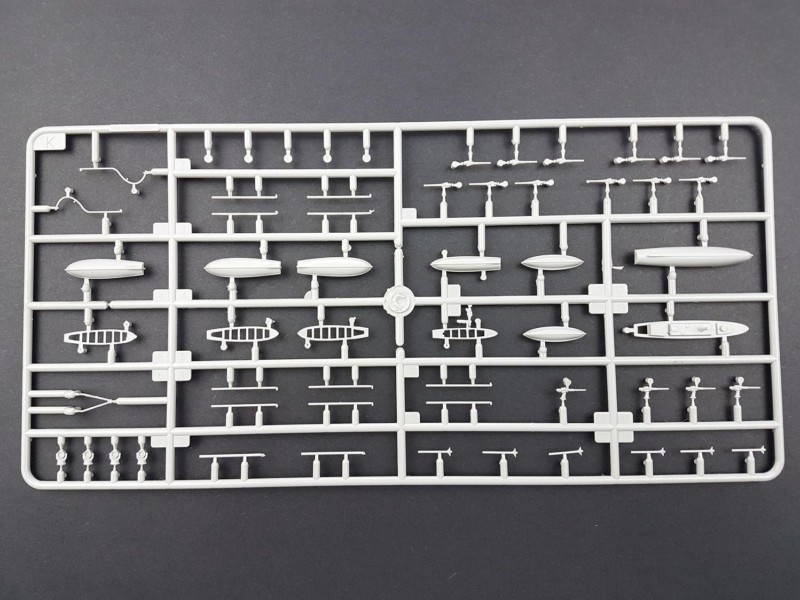
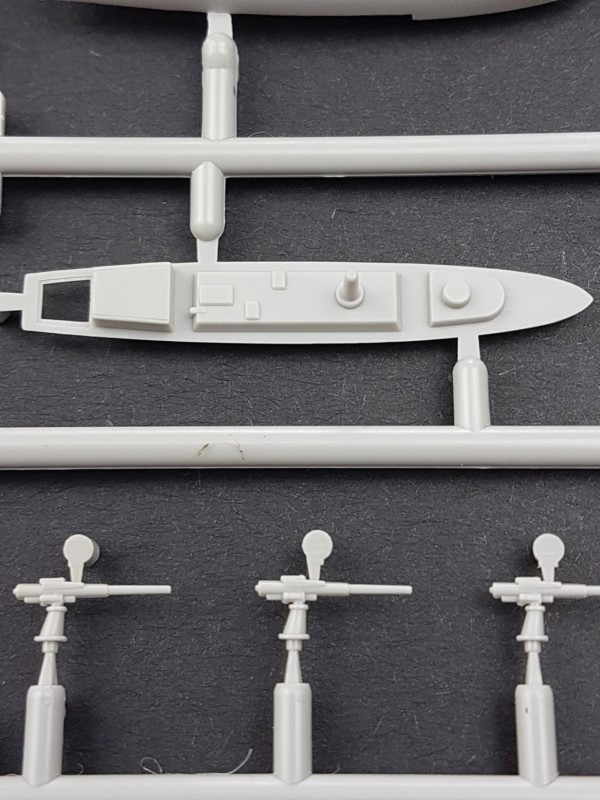
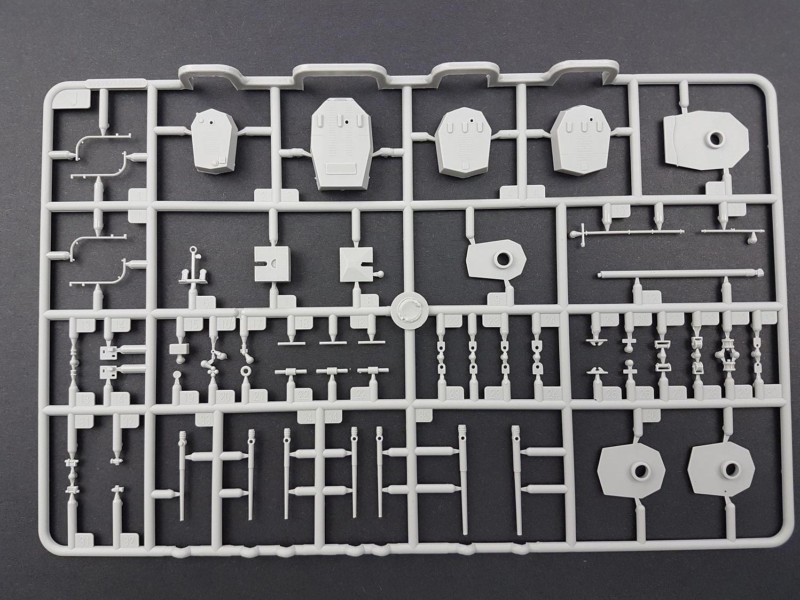
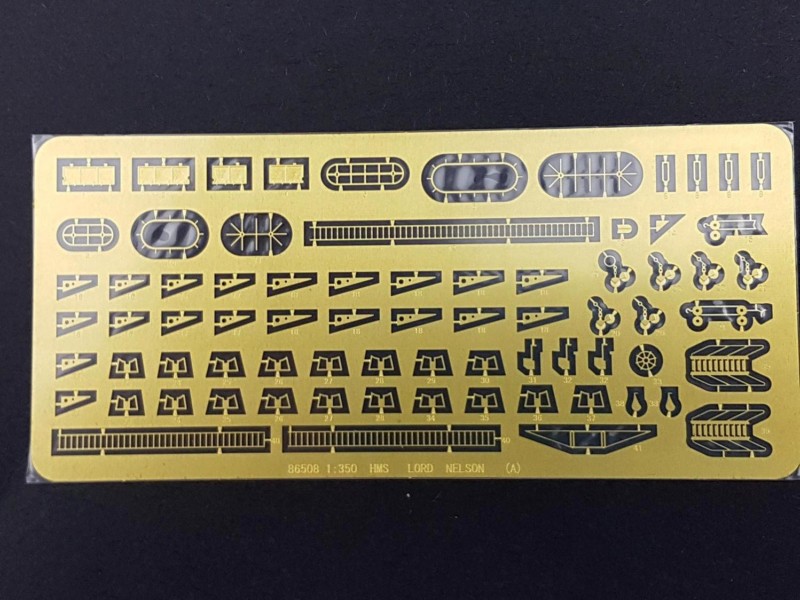
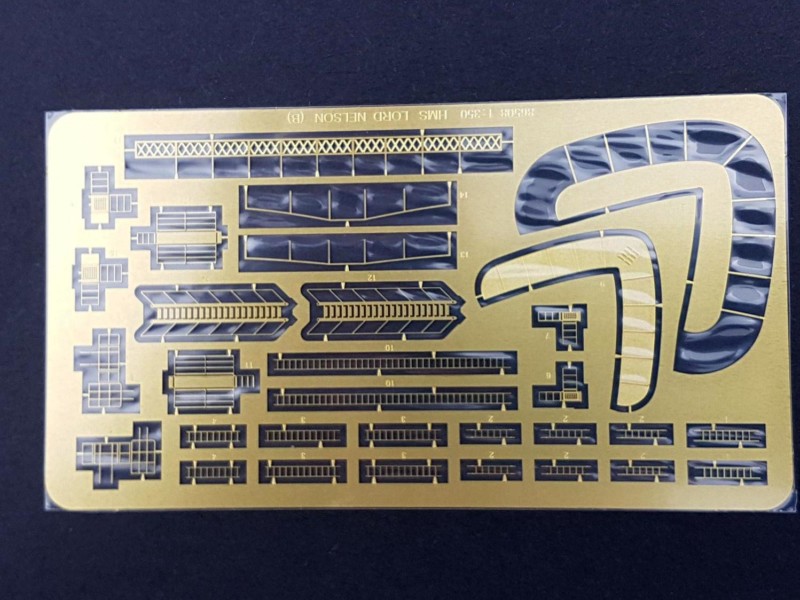
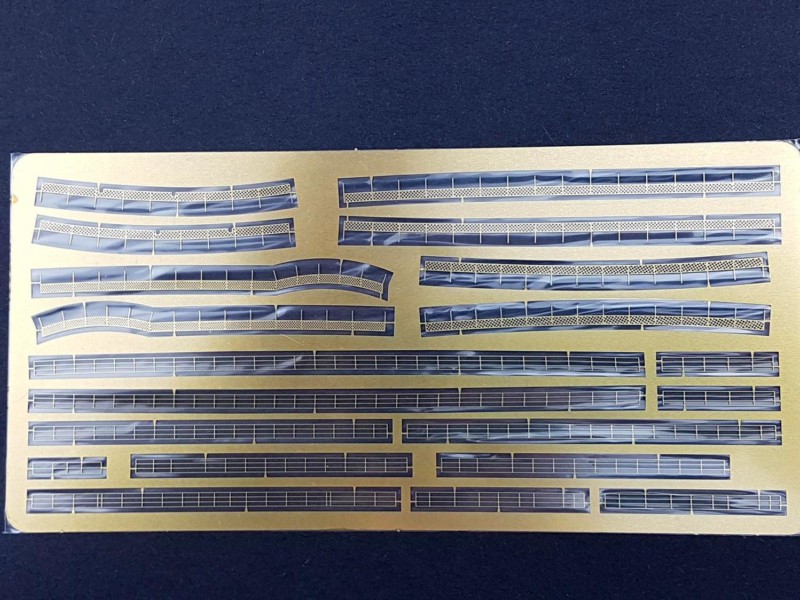
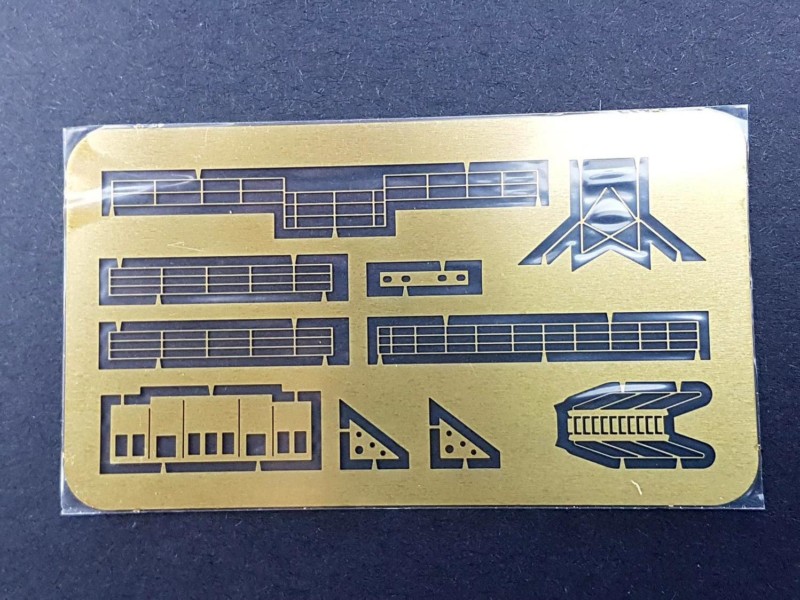
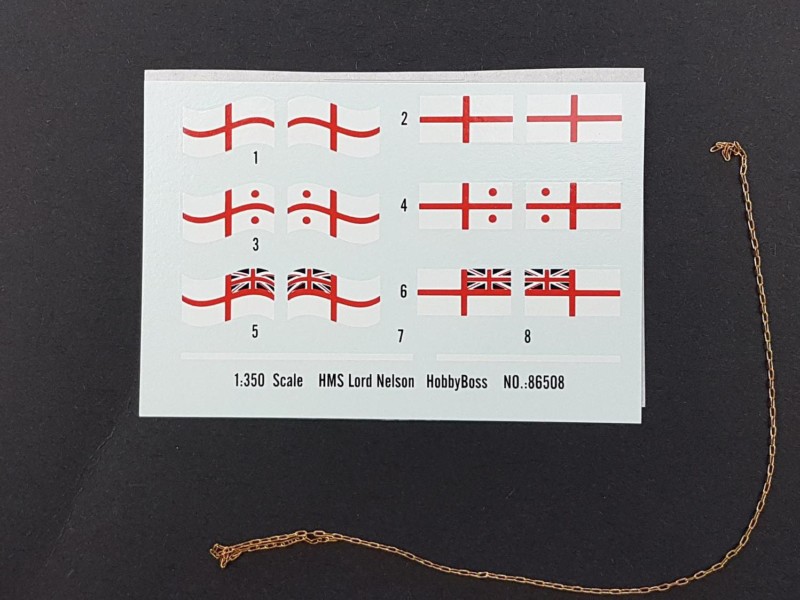
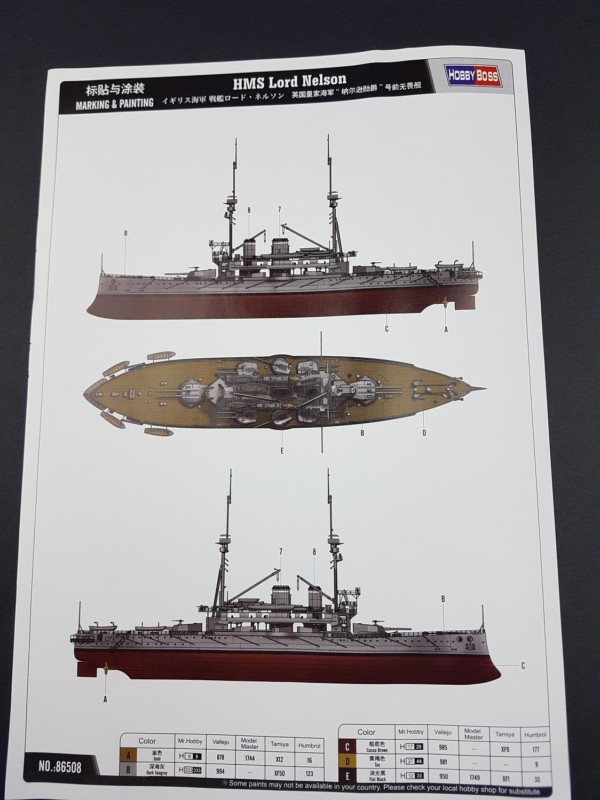
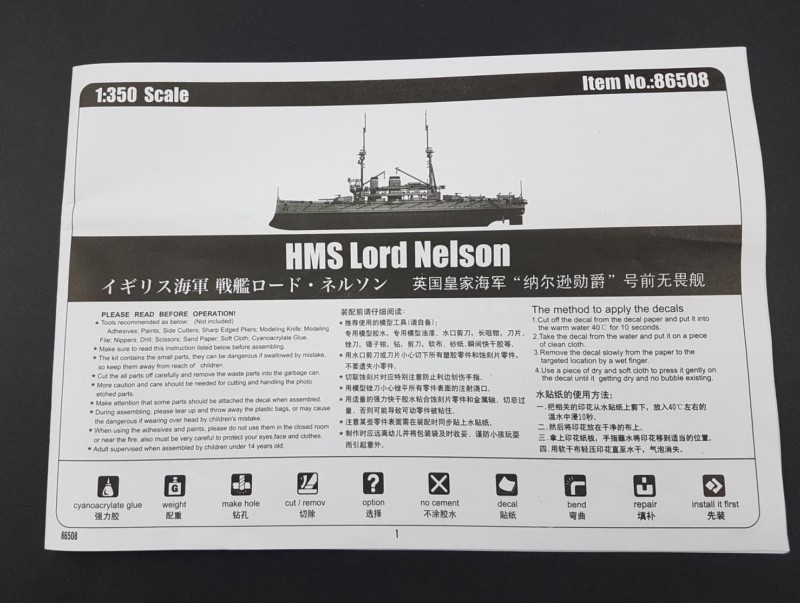
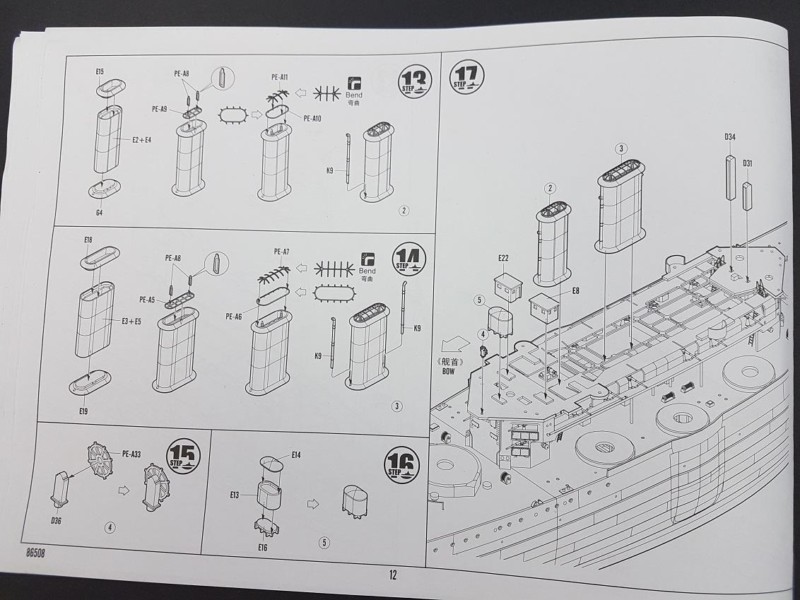
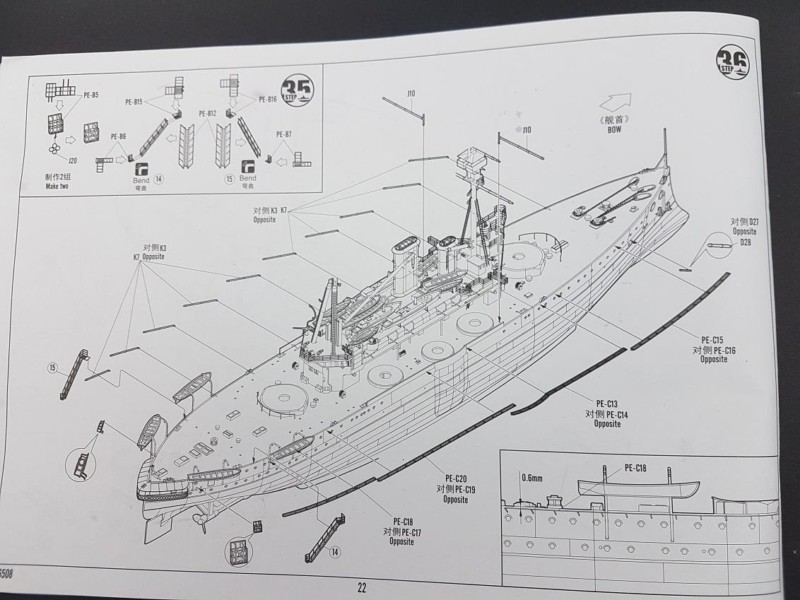
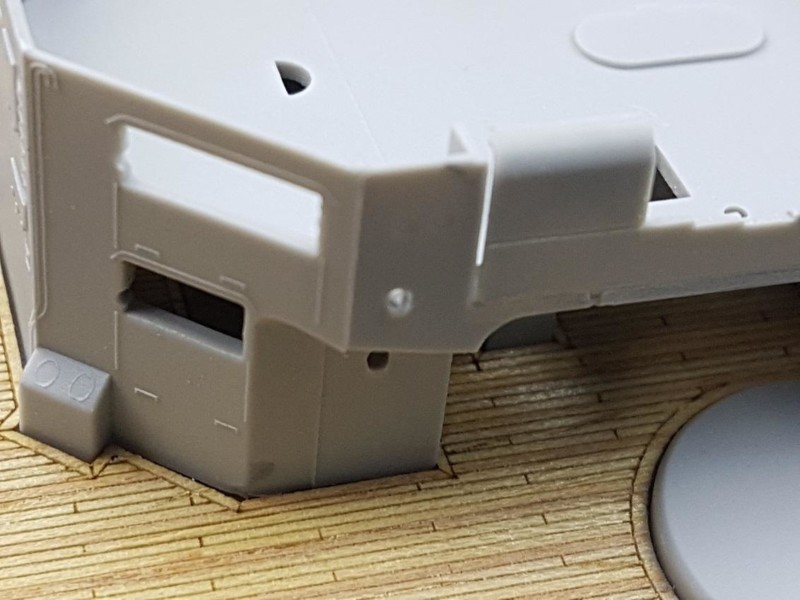

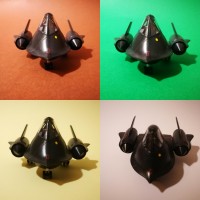
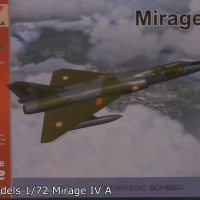
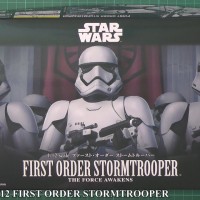
Looks like it'll be a beauty, but all that PE scares me - 🙁
(me and PE don't play well together).
Looking forward to your progress.
Not a ship builder at all, but looking at this makes me feel like building one, look forward to the build, hurry up and build so that you can post...
I noted that the ships rowing boats are given in two parts, hull and gunvale/thwarts. So much better than molding them in one piece. I wish this was the standard procedure.
A ship! And what’s more...a good one! Looking forward to progress updates on this project.
Fscinating stuff! And a pre- Dreadnaught, at that!
This looks like a great and interesting kit, Brent. I look forward to your completion!
Just bought one of these and so will be following this with great interest. What do you think about the main armament? The guns look good but would you suggest brass? I see RB Models of Poland do a set of 12" barrels.
Hi Chris,
The kit barrels along with the torpedo net booms are amongst the best I have seen in plastic, having said that brass replacements are certainly an improvement. I am lucky enough to have a spare Pontos Dreadnaught detail set from which I used the brass net booms, main armament barrels, hatch covers and coal scuttle covers. So to answer your question, yes I would go for aftermarket barrels but only if you have the spare cash otherwise you will still get a fine model from the box.
Cheers
Brent
Hey Brent. I have the sister ship Agamemnon from Hobby Boss. I want to depict it at the Dardanelles action. I note from photos and your review that the small guns on top of the turrets should be absent, and you say there ought to be an AA gun and extra searchlights.
How does one find out these things? Is it in that Burt book you mention? Does it feature all ships at varipus stages of the war?
Hi Paul,
The Burt books cover all of the mods, both in line drawings and photographs.
Happy modelling
Cheers
Brent